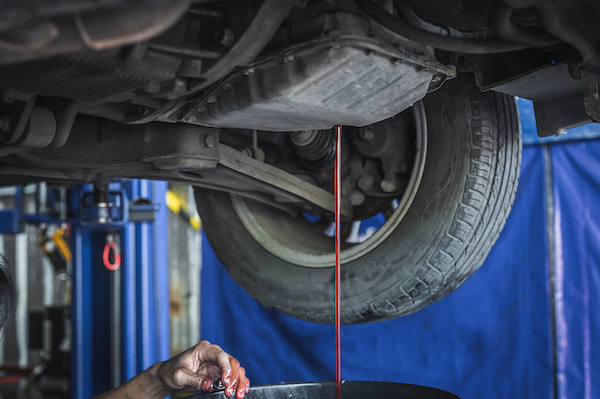Posted on 7/25/2023
The Importance of Proper Wheel Alignment: What You Need to Know The wheels' alignment is your vehicle's steering force, directing your journey at every turn. At Mint Auto Service, we advocate for proactive auto care to ensure your ride is safe and smooth. Read on to learn more about the significance of proper wheel alignment and how it can save you from expensive repairs and unpredictable road incidents. What is a Wheel Alignment? In simple terms, wheel alignment involves adjusting your vehicle's wheels to conform to the manufacturer's specifications. This fine-tuning ensures harmony between your vehicle's suspension system and its wheels - an essential factor in your vehicle's overall health. Why is Proper Wheel Alignment Important? Drivers often underestimate the significance of regular wheel alignment in car maintenance. Yet, it significantly in ... read more
Posted on 7/7/2023
How to Find the Best Auto Repair Shop in Calgary Whether you're a seasoned driver or a novice on the roads, navigating Calgary's auto repair scene can feel challenging. Finding the best auto repair shop may take some time and research, but the payoff is worth it. A reliable, honest, and skilled auto repair shop can save you time, stress, and money in the long run. Here are a few tips to help you find the best auto repair shop in Calgary: Understand Your Vehicle's Needs Different cars have different needs, so you want to ensure the shop you choose can cater to your vehicle's requirements. For instance, a luxury sports car needs different care than a family SUV. Some auto repair shops may excel in routine maintenance, while others might be experts in specific repair jobs. Read Reviews & Get Recommendations Online reviews and recommendations are a great way to gauge a repair shop's reputation. Word-of ... read more
Posted on 7/7/2023
The Importance of Regular Auto Maintenance to Prevent Costly Repairs The phrase, 'prevention is better than cure,' rings particularly true when it comes to vehicle maintenance. Regular auto maintenance not only keeps your car running smoothly but also saves you from unexpected repair bills. Whether you own a racy sports car, a sturdy pickup truck, or a reliable SUV to get the kids from school to practice, it's crucial to understand that regular auto maintenance isn't just an optional luxury - it's an essential duty. Frequent oil changes, timely brake checks, and other routine maintenance services are the keys to vehicle longevity. By ensuring these are performed, you can extend the life of your vehicle and maintain its performance and safety. Regular Maintenance - The Lifeline of Your Vehicle Neglecting regular maintenance impacts your vehicle's longevity and performance. Small, unnoticed issues can become ma ... read more
Posted on 7/7/2023
How to Avoid Costly Engine Repairs with Simple Maintenance Habits Your engine is the heart of your vehicle, pumping life through every part and function. At Mint Auto Service, we believe in preventive care to keep your vehicle reliable. Here's how you can avoid costly engine repairs with simple yet effective maintenance habits: 1) Pay Attention to Warning Signs Vehicles are more intelligent than we give them credit for. They often communicate their distress with subtle (and sometimes not-so-subtle) alerts and signals. Engine overheating, unusual noises, reduced power, or even a simple Check Engine light can indicate that your vehicle wants attention. If you notice anything unusual, bring your vehicle to Mint Auto right away to avoid costly engine repairs. 2) Regular Oil Chan ... read more
Posted on 6/30/2023

Proper maintenance is crucial to vehicle performance and safety. The car's transmission is a vital part that requires care, especially the transmission fluid, which lubricates the transmission. Transmission issues are expensive, which is why you should care about maintenance. The following is what you need to know about transmission fluid: Importance of Transmission Fluid Flushes A car's transmission involves many moving parts. The transmission fluid regulates temperature to ensure all the components work smoothly together. Due to absorbing heat and regulating temperature, transmission fluid breaks down and burns with time. Eventually, it will start negatively affecting the transmission and other car parts. Regular transmission fluid flushes are crucial to keeping the transmission working optimally and keeping the car in excellent shape. When To Flush Transmission Fluid Most car owners have little to no idea how often they should flush their transmission fluid. It can be ... read more